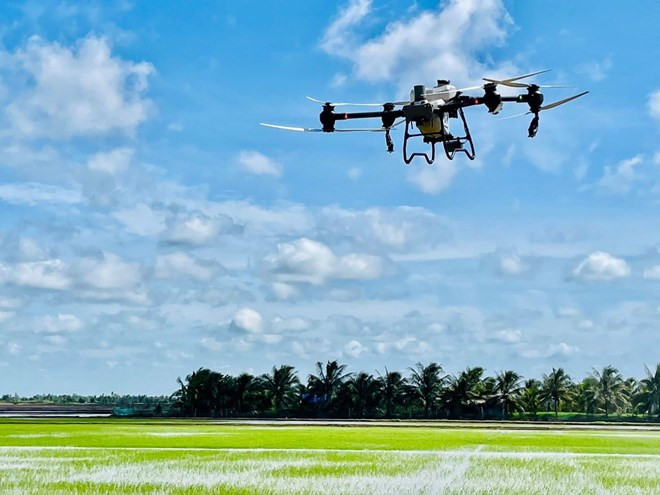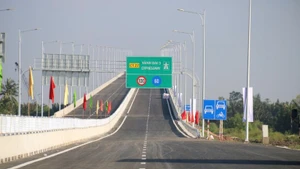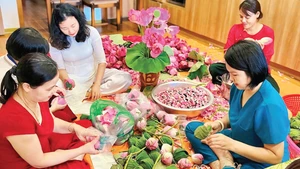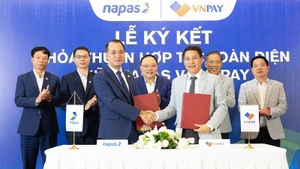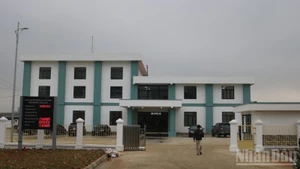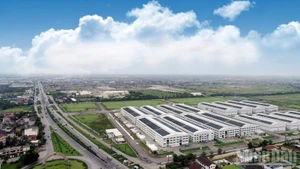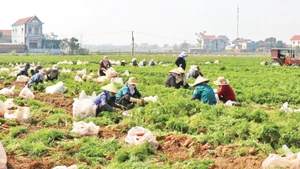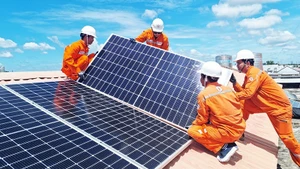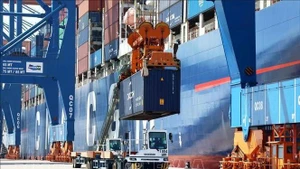Agricultural landscape and diversification
Spanning over 331,180 hectares, Soc Trang Province dedicates approximately 280,384 hectares (84.66%) to agriculture, ranking fifth in the Mekong Delta region. Rice remains the province’s primary crop, with a strong emphasis on diversification.
The province actively promotes the cultivation of high-quality, high-yield, and specialty rice varieties while integrating scientific and technological advancements across production, processing, preservation, and consumption. These efforts significantly enhance post-harvest rice value.
Dr Tran Tan Phuong, Deputy Director of the provincial Department of Agriculture and Environment, highlighted that Soc Trang has established organic rice production zones covering more than 16,000 hectares.
In 2024, rice planting reached 338,047 hectares, yielding over 2.1 million tonnes - exceeding planned targets and marking a 5.21% increase compared to 2023.
Soc Trang has committed 72,000 hectares to the project on sustainable development of one million hectares of high-quality, low-emission rice cultivation associated with green growth in the Mekong Delta by 2030. Currently, the province is piloting this model across 50 hectares in Long Phú District, with promising results.
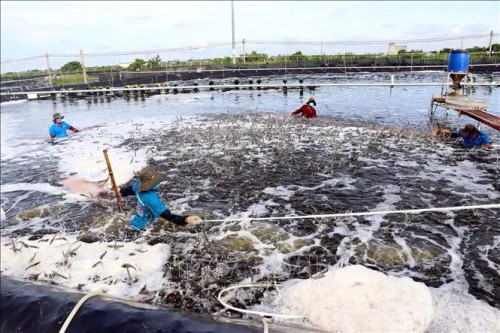 |
| Hi-tech shrimp farming in Soc Trang (Photo: VNA) |
Regarding aquaculture, the province boasts over 74,000 hectares of aquaculture development, yielding an annual output of approximately 310,000 tonnes, including 212,000 tonnes of brackish-water shrimp, over 94,400 tonnes of freshwater fish, around 3,550 tonnes of other aquatic species.
The province has facilitated 4,065 aquaculture farming registrations for key species and continues to improve the management of input materials.
Additionally, Soc Trang is strengthening fruit cultivation, with 29,000 hectares dedicated to mangoes, star apples, longans, grapefruits, and durians - catering to both domestic and export markets.
To enhance agricultural value, Soc Trang has developed 106 specialised cultivation codes covering more than 604 hectares. Two additional codes have been granted for domestic cultivation, spanning nearly 44 hectares for tangerines and pineapples.
Digital transformation and strategic sustainability goals
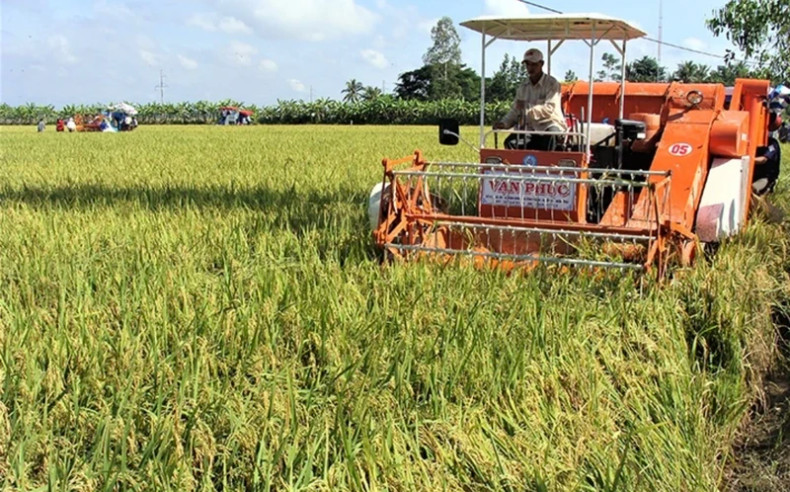 |
| Farmer harvesting rice in Soc Trang Province |
Soc Trang is accelerating mechanisation and digital transformation within the agricultural sector, focusing on automation and technology integration to improve efficiency and productivity.
Modernisation efforts are particularly evident in rice production, where innovative technologies are employed.
For example, Phuoc An Agricultural Cooperative in Chau Thành District has implemented QR code scanning across 63 hectares of smart fields, enabling real-time updates on land area, rice varieties, and fertiliser usage. This system enhances traceability and digital agricultural management.
Lam Phuong Tung, the cooperative’s director, said that mobile applications allow farmers to track water salinity levels, monitor pest density, and optimise fertilisation and pesticide use—leading to a 20–30% reduction in pesticide costs.
Meanwhile, Tan Hung Phu Cooperative in Long Phu District employs drones for sowing, fertilising, and pesticide spraying, saving farmers between 1.5 to 2 million VND per hectare compared to traditional methods.
Currently, Soc Trang utilises 141 drones for sowing, pesticide spraying, and fertilisation; 650 combine harvesters managing over 330,380 hectares of rice; 130 straw balers repurposing straw for livestock feed, mushroom cultivation, and composting; and thousands of tractors ensuring optimal land preparation before sowing
Vision for sustainable development
According to Dr Lam Van Man, Secretary of the Soc Trang Provincial Party Committee, science, technology, innovation, and digital transformation remain key priorities for the province.
By 2030, Soc Trang aims to maintain an annual rice production of 2.13 million tonnes, with over 93% classified as specialty and high-quality rice; expand fruit cultivation to cover more than 29,000 hectares; achieve annual brackish-water shrimp production of over 212,000 tonnes; and raise harvested product value to exceed 233 million VND per hectare for crop and aquaculture land.
To accomplish these objectives, Soc Trang is strengthening collaboration with neighbouring provinces to integrate advanced technology, enhance agricultural productivity, and ensure environmental sustainability.
The province's strategic planning for 2021–2030, with a vision extending to 2050, outlines a roadmap for sustainable, green, and modern agricultural development—aligned with national initiatives for building new rural communities.
Key priorities include establishing specialised cultivation zones at appropriate scales; implementing scientific and technological advancements across agriculture, forestry, aquaculture, and fisheries; and developing resilient crop, livestock, and aquatic breeds adapted to climate change, soil conditions, and evolving market demands.
Through these concerted efforts, Soc Trang continues to promote sustainable agricultural development, ensure long-term economic growth while safeguarding its natural resources.
